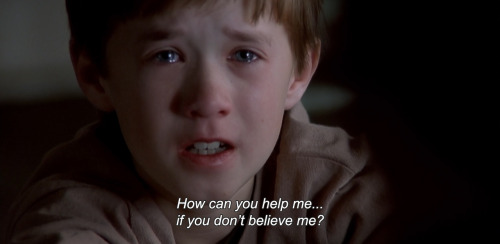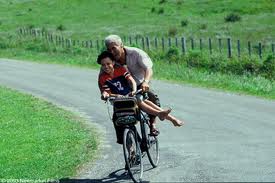"Chariots of Fire" is a story about two men who love running, but both with different reasons.
Harold Abrahams is an English Jew who entered to University if Cambridge, successfully ran around the university courtyard within the period of the clock to strike 12. This talented and smart man runs for the reason to prove himself and eliminate the prejudice towards him. While Eric Liddel, a Scottish who devoted to his religion with missionary parents in China. Eric always thought that running is a gift from God and another way to glorify God's name.
 |
| Eric Liddel (acted by Ian Charleson) & Harold Abrahams (acted by Ben Cross) |
Expectancy theory can explain Eric's motivation and decision to run the race although facing obstacles. Expectancy theory suggested that one's motivation is determined by the perception of self-role in performance (instumentality), efforts toward performance (expectancy) as well as the perception of the value of outcome (valence) (Vroom, 1964). Eric perceived the value of outcome as reinforcement (a sense of accomplishment, to himself and to glorify God's name), also believed in himself and worked hard to achieve the outcome. As his sister could not understand his passion to run, Eric tried his best to prove himself by persevere in his decision. When Eric found that his one of his race in Olympic would be held on Sunday, although facing great pressure from the committee, he still insisted not to participate in that race because Christian conviction of not running on Sabbath day. This made headline around the world, and Eric got a chance to run another race on Thursday, offered by his teammate. Eric did not violate his own standard toward his faith, because he viewed Christian conviction as greater reward in the outcome, nor give up to run the race when he got another chance because he viewed that another reward of outcome (glorify God's name).
Steven Reiss suggested Intrinsic theory with 16 basic desires (2002). The desires of acceptance (the desire of approval), honor (the need of loyalty to ethnic group), physical activity (the need of exercise) and social status (the need for social standing) motivated Harold to run and accept training from Sam Mussabini, although he faced criticisms from the Cambridge university masters. Harold run to eliminate prejudice on him being a Jew in Cambridge University, wanted to prove his identity also realized the need of physical training for better performance in the race. These were the motivations that pushed Harold to work harder and finally won a gold medal in Olympic.
As I also have my own devotions and dedications to my religious belief and in church, I could much relate how Eric felt when he faced the dilemma of choosing between his passion and dedication to church ministry. I enjoy serving in church, at the same time enjoy pursuing my dream to help more people through studying psychology. However, there are times when I need to choose whether to stay back in church for important meeting and ministry, or to attend an important and meaningful class, not to say when it comes to juggle with family gathering or friends-hang-out day too. In this case, with expectancy theory, I would evaluate what is my role for every tasks, the capabilities it take for the task and also value of the outcome. I would probably choose to go for the task with more controlled and predicted outcome (my role in the task; instrumentality), task that I am able to complete will skills and knowledge (capabilities; expectancy), and with greater reward (valence). As for me, I would always set a quiet time to pray to God and ask around for direction. I will also evaluate to try to balance between benefits to others and self, not to take others and self for granted.
References
Reiss, S. (2002). Who am I? The 16 basic desires that motivate our actions and define our personalities. Berkley Trade.
Reiss, S. (2002). Who am I? The 16 basic desires that motivate our actions and define our personalities. Berkley Trade.
Vroom, V. (1964). Work and motivation. New York, NY: Willey.
Picture from Google
https://www.google.com/search?q=chariots+of+fire&espv=2&biw=1366&bih=667&site=webhp&source=lnms&tbm=isch&sa=X&sqi=2&ved=0ahUKEwjamarEhYjMAhUmhqYKHakgCeQQ_AUIBygC#tbm=isch&q=chariots+of+fire+harold+and+eric&imgrc=Ck8Ty7AUsScZtM%3A







